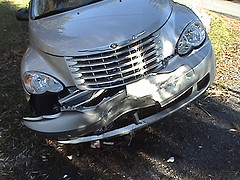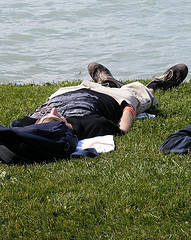 Many people rent cars when they go on vacations. Compared to the usual forms of public transportation, car rentals offer greater flexibility and convenience. However, it can be dangerous to drive in a foreign land or an unfamiliar place. To protect both the car rental companies and the people who rent cars, rental car insurance is highly recommended.
Many people rent cars when they go on vacations. Compared to the usual forms of public transportation, car rentals offer greater flexibility and convenience. However, it can be dangerous to drive in a foreign land or an unfamiliar place. To protect both the car rental companies and the people who rent cars, rental car insurance is highly recommended.
As a type of travel insurance, there are many reasons why rental car insurance is important. Basically, there are two main types of car insurance: collision and liability. Collision insurance covers all your financial obligations with the car rental company should you get involved in an accident, such as repair or replacement. Liability insurance covers damages to your own self. If you suffer severe injuries or death as a result of the accident, you can be assured that your dependents or other beneficiaries will be compensated in some financial form.
If you have already bought your own car insurance, check to see if it can also be applied as a travel insurance policy. In the situation where you have comprehensive coverage, then it will most likely apply to any rented car you drive in the world. The problem is, not many car insurance policies provide comprehensive coverage. This means your car insurance policy only covers liability damages and may not cover collisions. Before you travel, it’s best to be clear about these points.
Some credit card companies also provide rental car insurance for free or at a discounted price if the credit cards are used for the car rental. However, the Insurance Information Institute recommends that you do some research before purchasing travel insurance from your credit card provider because not all of them have comprehensive insurance policies. Some will provide benefits only to your own rental car, but not to other cars involved in the accident. Still, others provide collision benefits to all vehicles involved, but will not cover injuries or deaths.
Car rental companies also have their own version of rental car insurance, although it is not actually called insurance. These are loss damage waivers (LDW) and collision damage waivers (CDW). They are equivalent to collision insurance and comprehensive insurance. Just like collision and liability insurance, LDW and CDW require you to pay a deductible, usually ranging from $9 to $19 for each day you rent the vehicle. You can also include a death and personal property insurance, which will provide benefits for death and medical expenses in case anything happens.
Keep in mind that buying your insurance from the car rental company may be more expensive than getting a policy from an insurance provider. If you already have life, medical, or personal property insurance, you may not even need to apply for a waiver from the car rental company at all. Check with your insurance provider before you make any commitments, and if you do, make sure to always do your research first. Always go for the best rental car insurance policy that will keep you covered from head to toe, whatever may happen to you.
Photo credit: https://www.flickr.com/photos/mollyeh11/

 Most vacationers and travelers will opt for single trip travel insurance when they travel, but frequent travelers should consider getting an
Most vacationers and travelers will opt for single trip travel insurance when they travel, but frequent travelers should consider getting an  Many travelers spend a lot of time and effort planning the perfect vacations, and then, they will purchase just about any travel insurance policies available at the last minute. One thing they do not realize is they can get better coverage and save a considerable amount of money if they spend enough time searching for the best travel insurance policy.
Many travelers spend a lot of time and effort planning the perfect vacations, and then, they will purchase just about any travel insurance policies available at the last minute. One thing they do not realize is they can get better coverage and save a considerable amount of money if they spend enough time searching for the best travel insurance policy. Travel insurance is a necessity for travelers because it provides compensation for accidents or loss of belongings that may occur during a trip. While most travelers are concerned with getting the best prices for accommodations, transportation, and travel packages, few of them are aware they can save a lot of money on travel insurance too.
Travel insurance is a necessity for travelers because it provides compensation for accidents or loss of belongings that may occur during a trip. While most travelers are concerned with getting the best prices for accommodations, transportation, and travel packages, few of them are aware they can save a lot of money on travel insurance too. You’ve just finished your exams and it’s time to hit the big time. For three years your major in Philosophy has given you parties and lots of girls with glasses and a coffee habit. But now you’re graduating. There’s no job out there, and you kinda like the easy lifestyle so the best option is to go travelling to ‘find yourself’ or in other words, spend another year not doing much and burn out your parent’s credit card.
You’ve just finished your exams and it’s time to hit the big time. For three years your major in Philosophy has given you parties and lots of girls with glasses and a coffee habit. But now you’re graduating. There’s no job out there, and you kinda like the easy lifestyle so the best option is to go travelling to ‘find yourself’ or in other words, spend another year not doing much and burn out your parent’s credit card. Apple.com
Apple.com Ecotravelling.co.uk
Ecotravelling.co.uk SleepingInAirports.net
SleepingInAirports.net